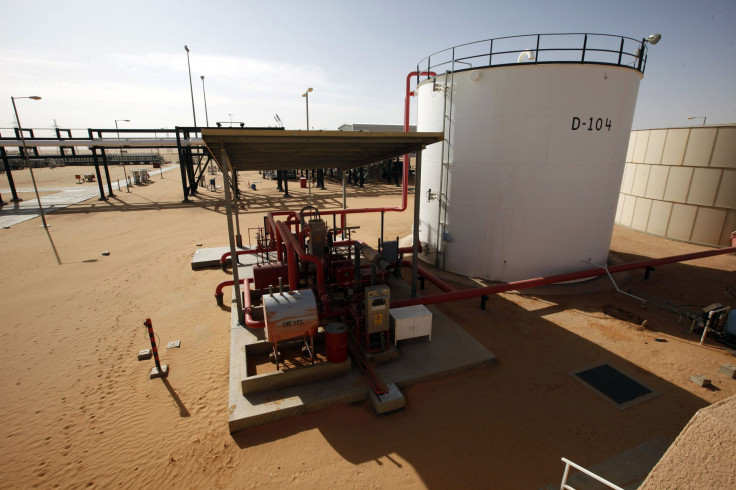Libya Forces Reclaim Oilfield After Islamist Militant Attacks

Libya’s state-owned oilfield security forces declared Friday that it retook control of the al-Ghani oilfield after Islamist militant groups attacked the facility last week. The announcement came amid a climate where two rival governments were fighting each other for power and unable to fulfill their obligations to protect the a state-run oil company as militant groups tried to gain control of the resource.
Ali Hassi, a security force official from the National Oil Corporation (NOC), said that he and the security forces were also in control of the Mabrouk, Bahi and Dahra oilfields in the central Sirte basin, and that at least seven of his own forces and some militants were killed while reclaiming the field, according to Reuters. The NOC had declared Wednesday 11 oilfields closed after last week's attacks.
Libya is torn between two competing governments. The internationally-recognized government of Prime Minister Abdullah al-Thinni has been operating out of the country’s east since a competing faction called Libya Dawn took over the capital city Tripoli last August and set up its own administration. Libya Dawn also effectively controls parts of western and eastern Libya, including some ministries. Both governments and Islamist militants have been coveting the country's vast oilfields.
Hassi, who is allied with the al-Thinni government, said that state security forces had been unable to enter the area due to mines, and that NOC had declared a force majeure on the oilfields, relieving it of its contractual obligation to defend the oilfield and its production during the attacks, according to Reuters.
Islamist militants have been gaining ground ever since former leader Moammar Gadhafi was ousted in a civil war in 2011, and many of them were thought to be affiliated with the terrorist group Islamic State. NOC had requested Wednesday for the governments to set politics aside and “put state interest above all and stand together against destruction,” according to the New York Times. Two major export terminals have closed since December due to the government rivalry, and sustained attacks from the militants have reduced the state’s crude oil output to less than half of the 1.6 million barrels per day produced during the Gadhafi era.
Talks between the country’s rival factions will resume this week in Morocco, focusing on forming a national unified government, the United Nations mission in Libya said Tuesday, according to the Associated Press. Previous talks held in Geneva and Libya had been unsuccessful.
© Copyright IBTimes 2024. All rights reserved.






















